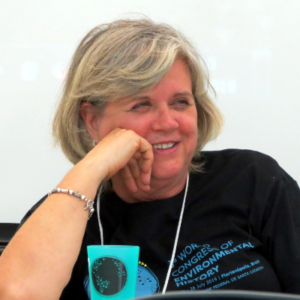
Eunice Sueli Nodari
General coordinator: Brazil. Federal University of Santa Catarina (UFSC). eunice.nodari@gmail.com
She has a degree in History from the University of Passo Fundo (1976), a Master in History (European) from the University of California at Davis (1992), and a PhD in History (Brazil) from the Pontifical Catholic University of Rio Grande do Sul (1999). Post-Doctorate at Stanford University – USA (August 2015 to February 2016), and at the Federal University of Minas Gerais (March to July 2016). She is an associate researcher at the Spatial History Project – CESTA / Stanford University. Since 2016 she is a full professor at the Federal University of Santa Catarina, having joined in 1993. She was coordinator of the Graduate Program in History at UFSC (2010-2015). Coordinator of the Interdisciplinary Doctorate in Human Sciences – Interinstitutional UFSC / UNIVALE (since 2017) Sub-coordinator of the Interdisciplinary Graduate Program in Human Sciences (2018) Master and Doctoral Advisor in the Graduate Program in History and the Graduate Program Interdisciplinary Graduation in Human Sciences. Takes courses in undergraduate and graduate courses on Environmental History and the environment and society. It operates in a network with KTH – Sweden and CESTA/Stanford. Since 2010 she is the coordinator responsible for the organization of the International Symposium on Environmental History and Migration (biannual event). She has experience in the area of History, with an emphasis on Environmental History, acting mainly on the following themes: Global Environmental History, vitiviniculture, socio-environmental disasters, environmental migrations, forests; biodiversity and spatial history.
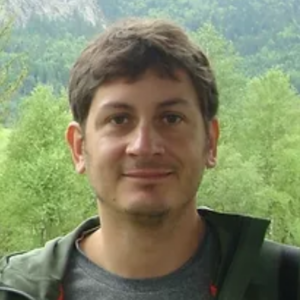
Juan Facundo Rojas
Regional coordinator: Argentina. National University of Cuyo. IANIGLA-CONICET. facundoroj@gmail.com
He holds a doctorate in Geography from the National University of Cuyo (2013). Completed postdoctoral academic stays at the University of Barcelona (2017) and at the University of Innsbruck (2019). He is Professor of Epistemology of Geography, Geographic Information Systems II and Secretary of the Institute of Geography, Faculty of Philosophy and Letters of the National University of Cuyo. His main investigations are carried out as Assistant Researcher of the Environmental History Group of the Argentine Institute of Nivology, Glaciology and Environmental Sciences (IANIGLA) -CONICET. He is the researcher responsible for PICTO UNCuyo 2016-0012 (Scientific and Technological Oriented Research Project: “Environmental problems and socio-historical reconfigurations. Conflicts, controversies and agendas on the ‘environmental issue’ in Mendoza”). He is a member of SOLCHA and CLACSO’s Political Ecology Group. Specialist in geography and environmental history, geotechnologies and political ecology.
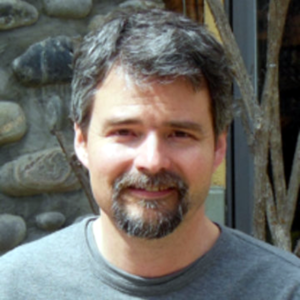
Zephyr Frank
Regional coordinator: United States. Stanford University. brazilhistory@gmail.com or zfrank@stanford.edu
Zephyr Frank is Professor of History and Director of the Urban Studies Program. He is also the founding director of the Center for Spatial and Textual Analysis (CESTA). His research interests focus on Brazilian social and cultural history, the study of wealth and inequality, and the digital humanities. Operates in undergraduate and graduate courses. He has a broad curriculum with publications of articles, book chapters and his most recent work was Reading Rio de Janeiro: Literature and Society in the Nineteenth Century (Stanford, 2016).
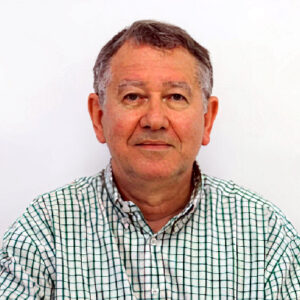
Rubens Onofre Nodari
Brazil. Federal University of Santa Catarina (UFSC). rubens.nodari@ufsc.br
He holds a Ph.D. in Genetics – University of California at Davis (1992). He held a Senior Internship at the University of California, at Berkeley (2016-2017), was a Visiting Researcher at the Rachel Carson Center, Munich – Germany (2019-2020). He is a full professor at the Federal University of Santa Catarina. In the Postgraduate Program in Plant Genetic Resources, he teaches the subjects Conservation of Genetic Resources, Analysis of Genetic Diversity and Population Genetics. Over the last 20 years, they have been conducting studies and advising undergraduate and graduate students related to (1) Domestication of Acca sellowiana, (2) genetics and plant breeding, (3) phylogeny and phylogeography of autochthonous plants and (4) biosafety and biohazards of GMOs. He is part of the vine and wine research network, working in genetics and vine breeding to combine disease resistance and wine quality. Partnerships with Epagri researchers, Julius KühnInstitut. JKI (Germany) and the Edmunch Mach Foundation (Italy) have provided the exchange of knowledge and germplasm of the Piwi varieties.
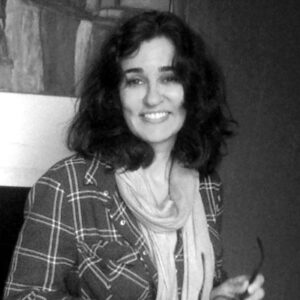
Carla Pires V. da Rocha
Brazil. Federal University of Santa Catarina (UFSC). carlapvrocha@gmail.com
Post-doctoral student in the Interdisciplinary Graduate Program in Human Sciences at the Federal University of Santa Catarina. Post-Doctorate at VU – Vrije Universiteit (Amsterdam / Netherlands), through the CAPES-NUFFIC program (2019). PhD in Human Sciences by the Interdisciplinary Program in Human Sciences at the Federal University of Santa Catarina (2017), with sandwich internship at VU – Vrije Universiteit (Amsterdam / Netherlands). Master in Communication and Information from the Federal University of Rio Grande do Sul (2009), Specialization in Food and Society / Universitat Oberta de Catalunya (2012), Specialization in Museology / Cultural Heritage / UFRGS (2005) and Bachelor of Visual Arts with qualification in Photography by the Federal University of Rio Grande do Sul (2002). He works in research, mainly related to the following themes related to Food: Sustainability / Sustainable Practices, Sustainable Vitiviniculture, Globalization, Communication, Consumption, Migration. Researcher at NAVI / UFSC – Center for Audiovisual Anthropology and Image Studies.
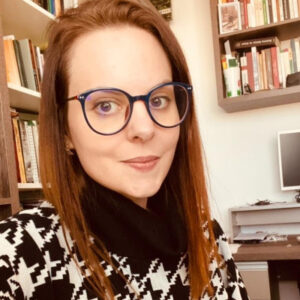
Samira Peruchi Moretto
Brazil. Federal University of Fronteira Sul (UFFS). samira.moretto@uffs.edu.br
Graduated in History from the Federal University of Santa Catarina (2007), Master in History from the same University (2010), PhD in History from the Federal University of Santa Catarina (2014), with a sandwich period at California State University, Long Beach (2013). She is an effective professor of the History Course and the Postgraduate Program in History at the Federal University of Fronteira Sul (UFFS). Currently, she coordinates the Postgraduate Program in History at PPGH / UFFS. She is part of the CNPq Research Groups: Laboratory of Immigration, Migration and Environmental History, LABIMHA / UFSC (researcher) and Borders: UFFS Environmental History Laboratory (leader). Researcher on the following themes: Environmental History, Domestication and Introduction of plant species, Deforestation, Reforestation, Biodiversity Conservation and History of Brazil Republic.
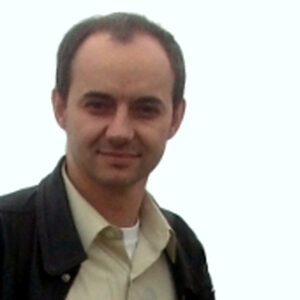
Marcos Gerhardt
Brazil. University of Passo Fundo (UPF). marcos@gerhardt.pro.br
Graduated in History (1992) from UNIJUÍ, Specialist in History from the same University (1997), Master in History from the State University of Londrina (2002) and PhD in History from the Federal University of Santa Catarina (UFSC, 2013). He is, currently, a professor at the University of Passo Fundo (UPF) and participates in a research project of the Laboratory of Immigration, Migration and Environmental History (www.labimha.ufsc.br) at UFSC and another research project of the Borders: UFFS Environmental History Laboratory. Has experience in the area of History, with emphasis on Environmental History, immigration, forest conservation and biodiversity conservation.
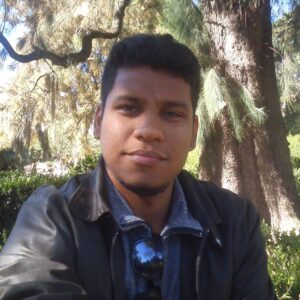
Antonio J. A. de Oliveira
Brazil. Federal University of Ceará (UFC). ajalvoliveira@gmail.com
Doctorate in History in the Program of Pos-graduation in Global History in the University Federal of Santa Catarina (UFSC) with Doctorate Sandwich in the Faculdade de Letras of University of Porto (FLUP). Scolarship from CAPES. Graduation in History from Universidade Federal do Ceará (2011) and Master in History from Universidade Federal de Santa Catarina (2014). Has experience in History, focusing on History of Cartography and Environmental History in Colonial Brazil, mainly researches about the ideas, the values and the perceptions and readings of the Natural and the Social World in the portuguese overseas possessions in the Second Half of the XVIIIth century, mainly the captaincies of the North in Portuguese America. Associate Reseacher in Port-Al-Hist – International Academic Network for German-Portuguese Research.
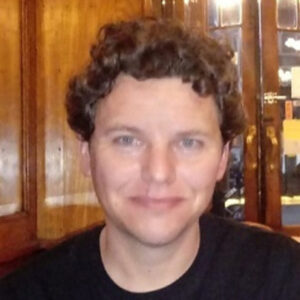
Marlon Brandt
Brazil. Federal University of Fronteira Sul (UFFS). marlon.brandt@uffs.edu.br.
Graduated in Bachelor and Degree in History from the State University of Santa Catarina (2004) and Bachelor in Bachelor and Degree in Geography from the Federal University of Santa Catarina (2004), Master in Geography from the Federal University of Santa Catarina (2007) and doctorate in History from the Federal University of Santa Catarina (2012). Professor of the Geography – Licentiate course, the Postgraduate Program in History and the Postgraduate Program in Geography at the Federal University of Fronteira Sul. He has experience in the area of Geography and History, acting mainly on the following themes: historical geography, environmental history, traditional populations, colonization, timber industry and fruit growing.
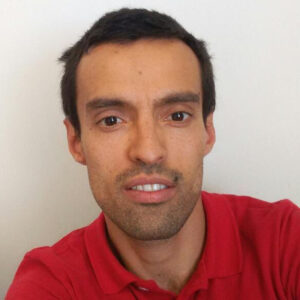
Miguel M. X. de Carvalho
Brazil. Federal University of Fronteira Sul (UFFS). miguel.carvalho@uffs.edu.br
Degree in History from the Federal University of Santa Catarina (2000-2004), Master in History from the Federal University of Santa Catarina (2004-2006) and Doctorate in History from the Federal University of Santa Catarina (2006-2010), with a doctoral internship from University of Kansas (USA). Postdoctoral in History at the University of Guelph – Canada (2016). Since 2011 he has been a professor of history at the Federal University of Fronteira Sul (UFFS), Laranjeiras do Sul-Paraná campus. He is a permanent professor at the Masters in History (UFFS) and Masters in Agroecology and Sustainable Rural Development (UFFS), where he teaches the subject of Environmental History. Master’s Advisor. At Undergraduate, he teaches the subjects of History of the Southern Frontier and History and Philosophy of the Sciences of Nature. Research topics: environmental history, deforestation, Araucaria angustifolia, Araucaria forest, history of industrial pig farming, history and animals, history of agricultural modernization, vegetarianism and veganism.
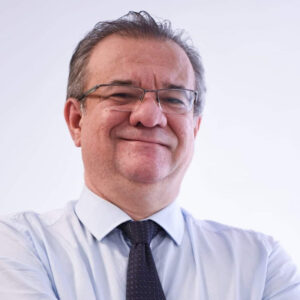
Pedro de A. B. César
Brazil. Universidade de Caxias do Sul (UCS). bittencourt_tur@yahoo.com.br
Graduated in Architecture and Urbanism from University of Taubaté (1989), specialist Planning and Touristic Marketing from Senac (2000), Master in Environmental Tourism and Culture Management and Planning from Ibero Americano University Center (2002), PhD in Geography from the University of São Paulo (2007) and post-doctoral in History from University of Caxias do Sul. He has a productivity scholarship from CNPq. He is an effective professor of the Graduate Program in Travel and Hospitality at the University of Caxias do Sul, a visiting professor in the Center of Spatial and Organizational Investigation of University of Algarve and a tutoring professor at the Autonomous University of the State of Mexico. He is the coordinator of the TurHist Conference (UCS/Brazil-Alg/Portugal) with emphasis in the research of Cultural Heritage and Wine Tourism.
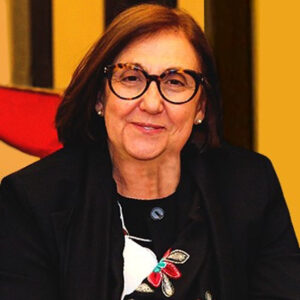
Vania Beatriz M. Herédia
Brazil. Universidade de Caxias do Sul (UCS). vbmhered@ucs.br
PhD in History from University of Genova, post-doctorates in Economic History from University of Padova (2002) and Anthropology from Federal University of Rio de Janeiro (2013). She is an effective professor of the Graduate Programs in Travel and Hospitality and History. She is also a member of the Italian Association of Archeological Industrial patrimony (AIPAI) and correspondent in the Olimpic Academy of Vicenza in the course of Law, Economics and Management. She coordinates the Migratory Studies research group and participates in the Urban Studies group in the University of Caxias do Sul. She is the author of various books about the industrialization of Italian colonization zones, economic history of Caxias do Sul, international migrations and recent history.
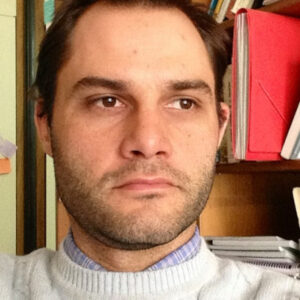
Facundo Damián Martín
Argentina. National University of Cuyo (UNCUYO). fdmartingarcia@gmail.com / fmartin@mendoza-conicet.gob.ar
Specialist in rural studies, political water ecology, environmental history and digital humanities. Adjunct researcher at the National Council for Scientific and Technical Research (CONICET) with work at INCIHUSA CCT Mendoza and regular professor at Department of Geography, National University of Cuyo. Agronomist from UNCuyo, Master in Agrarian Social Studies from FLACSO / Buenos Aires, Doctor from the University of Buenos Aires in Social Sciences and Diploma in University Teaching from UBA-CLACSO-FEDUBA. He is currently studying the Postdoctoral Program in Social Sciences at the University of Buenos Aires. Since 2006 he has received several scholarships to study in the country (doctoral and postdoctoral scholarship from CONICET and initiation to research by UNCuyo), as well as to carry out academic stays abroad (Brazil, Germany, Colombia, United States): for CONICET young researchers, UNCuyo International Teaching Mobility Scholarship, Red desiguALities Scholarship, German Ministry of Education and Research Scholarship (BMBF) – GLOCON Project (FU Berlin), Fulbright-CONICET Scholarship for Young Researchers (UCONN History).

Marina Miraglia
Argentina. National University of General Sarmiento (UNGS). marina.miraglia@gmail.com
Graduated in Geography from the University of Buenos Aires (1983), PhD in Geography from the same University in 2013. She is an associate professor and director of the Specialization in Thematic Cartography Applied to Spatial Analysis at the National University of General Sarmiento in the Area of Geographic Information Technologies and Spatial Analysis of the Conurbano Institute. She is a researcher on the following themes: Environmental History, Geographic Information Technologies, Historical Cartography, Toponymy. She is a member of SOLCHA and editor of the HALAC magazine of Environmental History.
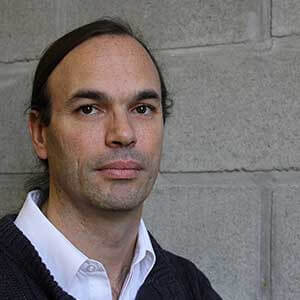
Juan Manuel Cerdá
Argentina. National University of Quilmes (UNQ). cerdajuanma@gmail.com
Graduated in History at the University of La Plata (2001), Master in Contemporary History of Europe and Latin America at the University Torcuato Di Tella (2008), specialist in Statistics Applied to Social Sciences at the Latin American Faculty of Socials Institute of Sciences of Economic and Social Development (2009) and doctorate from the National University of Quilmes. Mention in Social and Human Sciences (2009). He has been a researcher at CONICET since 2010 and at the Argentine Rural Studies Center at the National University of Quilmes. He has a doctorate in history, supervising a master’s and doctorate. He is a researcher on issues of economic and social history, with an emphasis on viticulture.
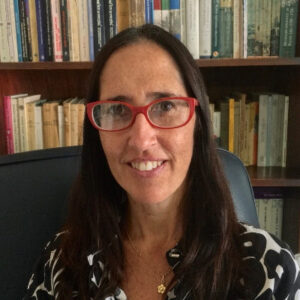
Eugenia Molina
Argentina. National University of Cuyo (UNCUYO). foramolina@hotmail.com
PhD in History (National University of La Plata, Buenos Aires, Argentina), effective holder of Argentine History I at UNCuyo and independent researcher at CONICET. She specializes in the study of State processes (18th and 19th centuries) from the perspective of the social history of justice and government, incorporating the problems related to the processes of territorialization and political spatialization as an explanatory key. An extensive production published in magazines and collective works, national and foreign, has incorporated in recent years the issue of water and soil management in the framework of the transitions between the viticultural and livestock models in 19th century Mendoza. See the profile at Academia.edu.
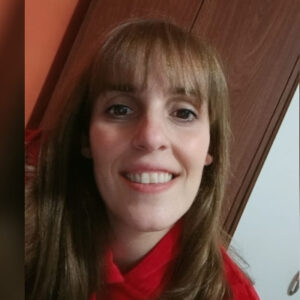
Florencia R. Vazquez
Argentina. CONICET, Instituto de Ciencias Humanas, Sociales y Ambientales (INCIHUSA). frodriguezv@mendoza-conicet.gob.ar
Graduated in Social Communication from National University of Cuyo and PhD in Social Sciences from National University of Quilmes. Adjunct researcher of CONICET in the Human, Social and Environmental Sciences Institute (INCIHUSA). She coordinates projects in Economic and Social History in Mendoza (CONICET and UNCuyo). She is the author of Education and Vitiviniculture (Prohistoria, 2012) and has works about education, agricultural technology and productive diversification published in Cuyo.
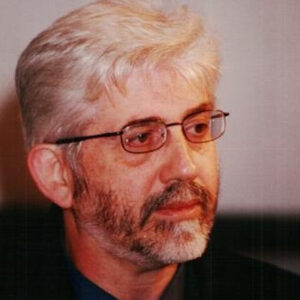
Alcides Beretta Curi
Uruguay. Universidad de la República. alcides.berettacuri@gmail.com
Graduated in History from University of Republic and PhD in History of America (University of Barcelona). Researcher in the Latin-American Interdisciplinary Studies Center. He develops research on various topics, such as european migration, urban and rural innovations, “terrateniente” elit, corporate organization, Rural Association of Uruguay, agriculture development and artisan workshops in the time
period of 1870-1914. Publications on the wine sector include several articles, books, book chapters and the organization of seven symposia and congresses.The most important work is History of Vine and Wine from Uruguay (1870-2000), in eight volumes, of which the first three are published and the fourth is in the process of being edited by the University of the Republic.
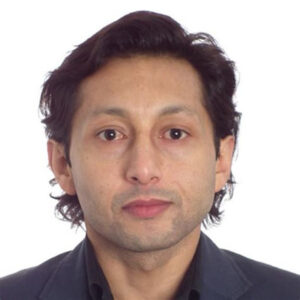
Wladimir Mejía Ayala
Colombia. Universidad Pedagogica y Tecnológica de Colombia (UPTC). wladimir.mejia@uptc.edu.co
Coordinator of the Graduate Programs in Geography EPG, Master and Doctoral Programs in Geography. Editor of the journal Perspectiva Geográfica, member of the research group GEOT Geography and Territorial Management. Junior Researcher and Par recognized by MinCiencias. Member of CONACES/MEN, Colombia. His interests are related to topics associated with tourism, heritage and local development. The geography of wine in Colombia.
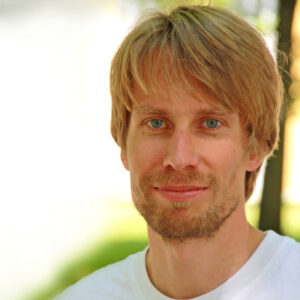
Gerhard Rainer
Germany. Katholische Universität Eichstätt-Ingolstadt. gerhard.rainer@ku.de
Gerhard Rainer studied Geography and History from the University of Innsbruck (Austria) between 2004 and 2010. In 2016 he received his PhD in Geography with a thesis on “Globalization and the political ecology of tourism and amenity migration in the Calchaquí Valleys (NW-Argentina)” . Since 2016 he works as a postdoc in Geography at the Catholic University of Eichstätt-Ingolstadt. It is currently advancing in a global comparative perspective, with case studies in Argentina, Chile, New Zealand and South Tyrol (Italy) to research the globalization of the wine industry from the 1980s onwards. For this, it is based on conceptual approaches of heterodox economics and Political Ecology. Along with Christian Steiner, he is the lead researcher for the project “Geographies of qualification in the global wine industry”, funded by the German Research Society (DFG). The main research topics are: globalization, man-nature relations, the wine industry, tourism and migration of amenities and inequalities.

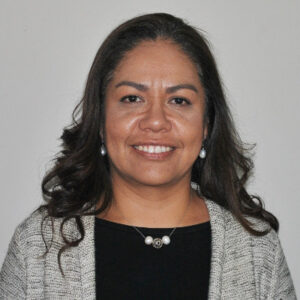
Diana Lizbeth M. Medina
Mexico. Universidad Autónoma de Baja California (UABC). mendez.diana@uabc.edu.mx
Graduated in History from the Faculty of Philosophy and Letters of UNAM. Master and PhD in History from the Center for Historical Studies of the College of Mexico. She is linked to the Institute of Historical Investigations of the Autonomous University of Baja California (UABC), Mexico, where she is a researcher and professor in the Master’s and Doctoral Program in History. Her general lines of research are the Economic and Political History of Mexico in the first half of the 20th century, with an emphasis on the study of the federal government’s agricultural policies and agricultural production in different areas of northern Mexico. It belongs to the Sistema Nacional de Investigadores (SNI), level I. Between 2013 and 2014 she was responsible for the research project: “Viticulture in Baja California, 1930s-1950s. Plans for agricultural development and the participation of the federal government”, with funding from the Program for Teacher Development for Higher Education (PRODEP).
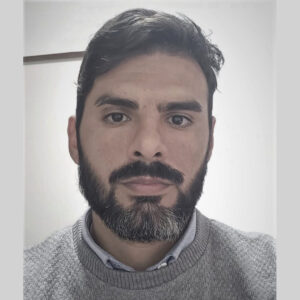
Juan Pablo Fili
Argentina. Consejo Nacional de Investigaciones Científicas y Técnicas (CONICET). juanpablo_fili@yahoo.com
Graduated in Sociology from the National University of Cuyo (2013), Graduate Professor at the National University of Cuyo (2015) and Doctor in Agricultural Social Studies at the Center for Advanced Studies of the National University of Córdoba. PhD fellow by the National Council for Scientific and Technological Research (2016-2022). Specialist in agricultural development policies, labor sociology and rural sociology. He integrates research groups related to the political ecology of water. It is linked to the Water Historical Archive project of the General Secretariat of Irrigation.
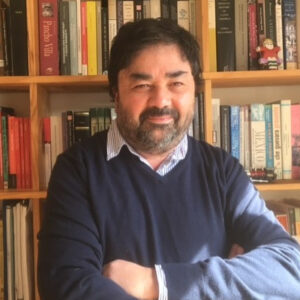
Claudio Robles Ortiz
Chile. Universidad de Santiago de Chile (USACH). claudio.robles@usach.cl / crobles@cehal.cl
Claudio Robles-Ortiz (Ph.D., History, University of California, Davis, 2002), is an Associate Professor in the Economics Department, at the Universidad de Santiago de Chile. He is also the Director of the Centro de Estudios de Historia Agraria de América Latina (CEHAL); and Editor of the journal Historia Agraria de América Latina (HAAL, www.haal.cl). He studies the economic, social, and political history of Chilean rural society from the 1850s to the present. His research examines technological innovation and economic growth in agriculture, the transition of the hacienda system towards agrarian capitalism, and agrarian interests in economic policy debates. In the area of political history, he studies the agrarian reform of the 1960s and 1970s as an experience of rural politicization and mobilization, along with its impact on both local and national politics. His recent publications include “Frontier Capitalism: Agrarian Expansion in Southern Chile, c. 1890-1930”, Bulletin of Latin American Studies 39: 2 (2020), pp. 238-254; “Modernization in the Periphery: The Introduction of the Tractor in Chile, c. 1910-1935”, Agricultural History 94: 3 (2020), pp. 413-443; and “The agrarian historiography of Chile: Foundational interpretations, conventional reiterations, and critical revisionism”, Historia Agraria 81 (2020), pp. 93-122.
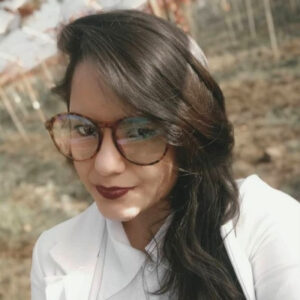
Débora Nunes de Sá
Brazil. Federal University of Santa Catarina (UFSC). nunesdesaa@gmail.com
PhD in History from the Graduate Program in History at the Federal University of Santa Catarina (UFSC), specializing in the research area of Migrations, Spatialities, and Globalities. Completed a Sandwich Doctorate Program Abroad (PDSE) at the National University of General Sarmiento, Buenos Aires, Argentina (2021-2022). Member of the Laboratory of Immigration, Migration, and Environmental History (LABIMHA/UFSC), the Center for Historical Studies of the Rural World (NEHMuR/UPF), and the Portuguese Rural History Network (Rural RePort). Holds a Master’s degree (2017) and a Bachelor’s degree (2014) in History from the University of Passo Fundo (UPF).
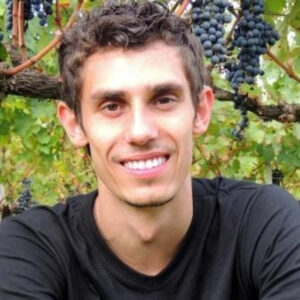
Gil Karlos Ferri
Brazil. Federal University of Santa Catarina (UFSC). gilferri@hotmail.com
PhD in History from the Federal University of Santa Catarina (UFSC), Master’s in History from the Federal University of Fronteira Sul (UFFS), and Bachelor’s and Teaching Degree in History from UFSC. Conducts research and teaches History, with a focus on Italo-Brazilian studies, viticulture, and Global Environmental History.

João Davi Oliveira Minuzzi
Brazil. Federal University of Santa Catarina (UFSC). jdminuzzi@gmail.com
PhD in History at the Federal University of Santa Catarina (UFSC) in the research line Migrations, spatialities and globalities, CAPES-DS scholarship holder. Member of the Laboratory of Immigration, Migration and Environmental History (LABIMHA) and member of the Working Group on Environmental History of the National History Association (ANPUH). He holds a Master’s degree in History from the Federal University of Santa Maria (UFSM), through the Postgraduate Program in History, having been a Capes scholarship holder. He graduated as a historian from the Federal University of Santa Maria (UFSM) in 2014, where he developed research-teaching-extension activities in Museums, Schools, Research Groups and Pre-university entrance exams. He received a scholarship from Capes for the Teaching Initiation Program (PIBID-História). Has experience in the area of History, with an emphasis on Environmental History.
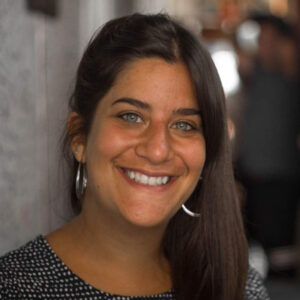
Lucía Cortez
Argentina. UNCuyo - IMESC, IDEHESI-CONICET. lulicortez_11@hotmail.com
Professor and Degree in History (Faculty of Philosophy and Letters, National University of Cuyo). Head of Practical Work in the Argentine History Chair of the Bachelor of Social Communication (Faculty of Political and Social Sciences, National University of Cuyo) and Doctorate of CONICET (2020-2025) within the scope of the Network’s Executive Unit Project: “El Estado argentino and their managers: trayectorias, identidades y disrupciones, 1852 / 1853-2010. From design to complex”. Her doctoral thesis investigates the trajectories of institutions and managers linked to the process of territorial appropriation of the provincial State in Mendoza at the end of the 19th century: Topographic Department, surveyors, engineers. Member of research projects funded by the Secretaría de Investigaciones, Internacionales y Posgrado (SIIP) of the National University of Cuyo.
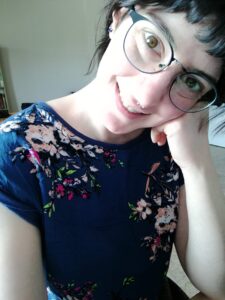
Marianel Falconer
Argentina. National University of Cuyo (UNCUYO). m.falconer90@gmail.com
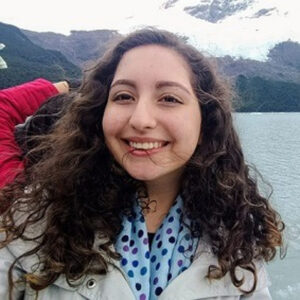
Julia Mai Velasco
Brazil. Federal University of Santa Catarina (UFSC). jmaivelasco@gmail.com
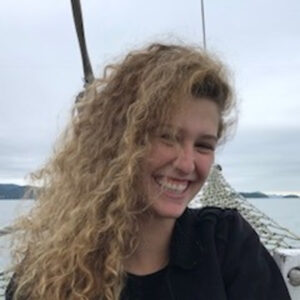
Laianny C.G. Terreri
Brazil. Santa Catarina State University (UDESC) laiannyterreri@gmail.com
Master’s student in History at the Santa Catarina State University (UDESC). CAPES scholarship recipient. Holds a Bachelor’s degree in History from the Federal University of Santa Catarina (UFSC), where she served as a scientific initiation fellow (CNPq/UFSC). Member of LABIMHA – Laboratory of Immigration, Migration, and Environmental History. Also a member of the research group “Center for Animal Studies” (CEA – UFMG).
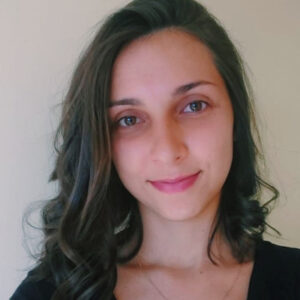
Michely Cristina Ribeiro
Brazil. Federal University of Santa Catarina (UFSC).michelyribeiro@hotmail.com
PhD student in the Graduate Program in History at the Federal University of Santa Catarina (UFSC), specializing in the research area of Environment and Migrations: Spatialities and Globalities. Holds a Master’s degree in History from the Federal University of Fronteira Sul (UFFS), focusing on the History of Settlement, Agriculture, and the Environment. Earned a Bachelor’s degree in History from the UFFS, Chapecó campus. Member of the research groups Fronteiras: Laboratory of Environmental History (UFFS) and the Laboratory of Immigration, Migration, and Environmental History (LABIMHA/UFSC). Has experience in the field of History, with an emphasis on Environmental History, national forests, deforestation, and reforestation.

Gabrieli da Costa
Brazil. Federal University of the Southern Frontier gabrieli.costad@gmail.com
Master’s student in the Postgraduate Program of the Federal University of the Southern Frontier, in the Line of Environmental History, Migrations and Sciences. CAPES scholarship holder. Graduated in History from the Federal University of the Southern Frontier, where she worked as a CNPq/Federal University of the Southern Frontier scientific initiation scholarship holder. She is part of the research group Fronteiras: Environmental History Laboratory of UFFS, registered with CNPq. She has experience in the area of History, with emphasis on Environmental History and winemaking.

